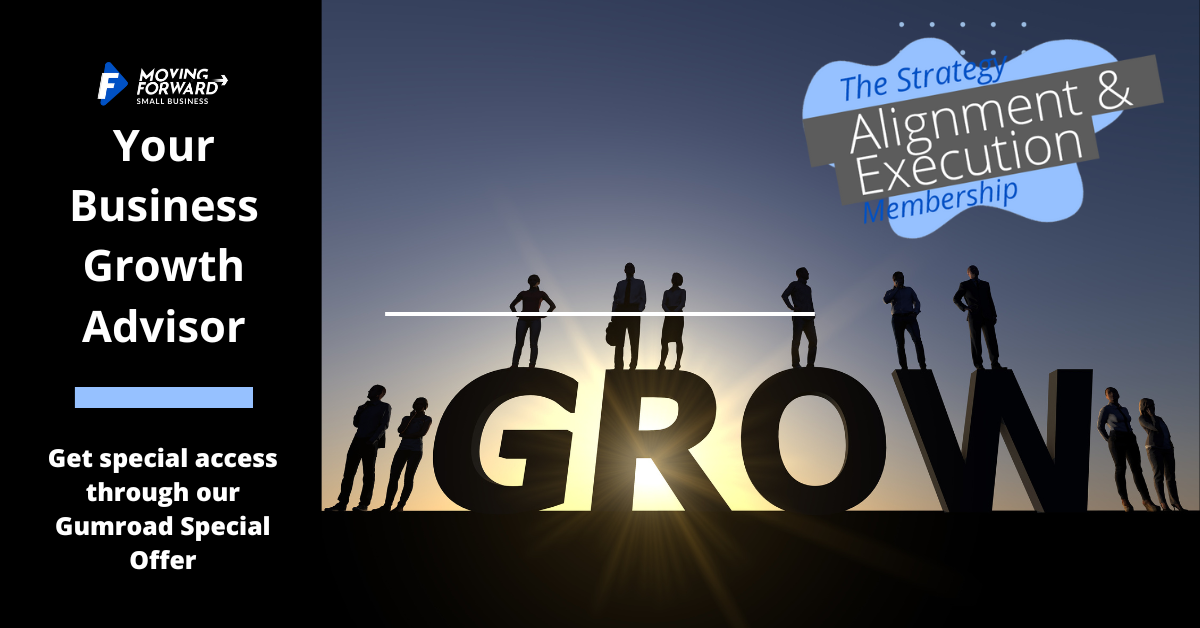Are there any online resources where I can find free business plan templates and examples?
Yes, there are several online platforms like Upmetrics, SCORE, and LivePlan that offer free business plan templates and examples. These resources can be a great starting point for creating a comprehensive business plan tailored to your specific needs.
Key Highlights
- Find out the key parts of a good business plan and how to adjust them for your industry.
- This blog shares 10 different examples of business plans, from tech startups to green retail and social businesses.
- Learn how to identify your target market, study your competitors, and create an effective marketing strategy.
- Understand why financial projections matter, like cash flow statements and balance sheets.
- Get resources and templates to help you make a business plan that gets investors interested and gives you a path to success.
Introduction
A solid business plan for a small business, including sample business plans, is key to any successful new business venture. To create this plan, mix detailed market research with a strong understanding of your target audience. Include a good look at your competition too. This way, your business plan serves as a roadmap to reach your goals. It helps guide you through both challenges and new opportunities for your company’s future.
10 Innovative Business Plan Examples to Elevate Your Strategy
In today’s changing market, creating a unique business plan is very important. A clear plan does more than catch the eye of potential investors. It also keeps you focused on your main goals. This plan can change and grow with your business.
Here are some examples from different industries and business models. They can inspire you and give you useful ideas to begin with. Use them as models and change the key elements to match your own needs and vision.
1. Tech Startup Business Plan: Emphasizing Innovation and Growth
The tech industry is all about new ideas and quick growth. A successful startup business plan in this field should show new technology, a plan that can grow, and a good understanding of the target market.
Think about your unique value proposition. What makes your tech solution different? Show that you know the competitive landscape well and find ways to enter the market. Detail what funding you need and explain how you will make a profit. It’s important to show your company’s growth potential to investors.
Keep in mind, a tech startup business plan is more than just numbers. It’s about telling an interesting story of innovation, change, and future opportunities. Investors want to find the next big idea – show them that you have it.
2. Eco-Friendly Retail Business Plan: Focusing on Sustainability in Retail
Sustainability is not just a trend anymore; it’s something we need. People today care more about their impact on the environment. This change has created a big market for eco-friendly businesses.
In your retail business plan, highlight how you are committed to sustainability in everything you do, especially in your first year. Show off your eco-friendly products and practices, and discuss your revenue streams, including net profit. Talk about where you get your sustainable materials and how you reduce waste and carbon emissions. Explain how your business model focuses on social responsibility and ethical buying.
Know your target market well. These are the people who care about sustainability and want to buy from ethical businesses. By making your business known for supporting sustainability, you can attract loyal customers. You can also gain a competitive advantage and help make the planet healthier.
3. Health and Wellness Services Business Plan: Promoting Holistic Health Solutions
The health and wellness industry is growing fast. People care more about their health now than before. To succeed in this area, you need a strong business model. This model should focus on giving complete health solutions.
First, you need to know your target audience. Are you aiming at fitness lovers, people who want to reduce stress, or those with certain health issues? Show off your team’s skills and how your health solutions really work. Make sure to explain how your business model meets the strong need for personal wellness programs.
It’s important to highlight your company’s goal of improving lives through full wellness. This will help attract customers and build a trusted brand in this fast-growing market.
4. E-commerce Business Plan: Strategies for Online Retail Success
With more people shopping online, having a strong e-commerce business plan is very important for success. Your plan should show your online selling strategies, the e-commerce platform you picked, and a marketing strategy based on data to connect with your target audience.
Describe your products and focus on what makes them special. Show how easy it is for users to enjoy your website. Look at your competitors and write down ways to get a bigger share of the market.
A big part of your e-commerce business plan is to discuss logistics and fulfillment. It’s vital to manage your inventory well, ship on time, and provide great customer service. These things help to create loyalty among your customers.
By showing that you really understand the e-commerce world and providing a clear plan for online retail success, you can get the attention of investors and set up a strong place in the online market.
5. Mobile App Business Plan: Capturing the Digital Market
The mobile app market is very competitive. You need a good business plan to get your app noticed. This plan should define your target audience and explain what they need. It should also show how your app gives them a unique solution.
You should describe the features of your app. Explain how it is different from other apps in the market. Your marketing strategy to get users is important too. This could mean optimizing your app for app stores, using social media, working with influencers, and creating engaging content.
It’s also important to have a clear way to make money from your app. This could be through in-app purchases, subscriptions, or ads.
A successful mobile app business plan shows that you understand your target audience well. It should also include a strong app idea and a smart plan for getting users and earning money.
6. Restaurant Business Plan: Crafting a Unique Dining Experience
A strong restaurant business plan is important for success in a crowded market. It should include usual financial details, but you need to highlight what makes your dining experience special.
Go into detail about your restaurant concept. Talk about the type of food you serve and the atmosphere you create. Also, explain who your target market is, including potential customers you expect to attract. Show what sets your restaurant apart. Is it the chef’s special style, fresh local ingredients, a commitment to sustainability, or a unique menu? Include a competitive analysis that looks at market trends in the restaurant industry. Make sure to share how you plan to attract and keep customers.
Think about adding a sample menu and pricing details to your business plan. Keep in mind that you are selling an experience. Your plan should excite the reader and make them want to visit your restaurant.
7. Freelance Business Plan: Setting Up for Freelance Success
Even if you work alone, a freelance business plan is very important. It helps you build a clear path to success. Start by defining your freelance services. Show what you are good at and your special skills. Then, think about your target market. Who are the clients you want to attract?
Next, create a marketing strategy to reach those clients. This could mean making a professional website, using social media, networking in your field, and marketing through content. You also need a financial plan. This plan should include your income predictions, costs, and pricing strategy.
When you treat your freelance work like a real business, you show that you are professional. This will help you attract steady clients and give you a chance for future growth and financial security.
8. Construction Company Business Plan: Building a Solid Foundation
A business plan for a construction company needs a strong knowledge of the industry and good financial projections. Start by describing the services your company offers. Focus on your skills and experience. Look at your competition and find chances to win new projects.
Show the experience and skills of your team. This will prove you can manage projects well and meet high standards. Safety is also very important in a construction company plan. Explain how you will provide a safe workplace for your workers and subcontractors.
By creating a clear plan that shows your skills, financial strength, and focus on safety, you can get funding, draw in clients, and grow a respected construction company.
9. Fashion Boutique Business Plan: Trendsetting in the Fashion Industry
The fashion industry is all about trends and knowing your customers well. When you create a fashion boutique business plan, it should do more than just follow a basic outline. It should show what makes your brand special and what you want for your place in the market.
Start by figuring out your unique style. What types of clothes and accessories will you sell? Next, find your target audience and learn about their fashion likes and dislikes. Do a detailed competitive analysis. This means looking at market trends and checking out successful fashion shops near you. Look for ways to grab a share of the market.
Then, explain your marketing strategy. Focus on how you will connect with your target audience using social media. Talk about working with influencers and hosting events. A good fashion boutique business plan should show a strong business model. It should also tell the story of your brand.
10. Social Enterprise Business Plan: Making an Impact Through Business
A social enterprise business plan is more than just about making money. It aims to create a positive impact while staying financially stable.
First, clearly state your social mission. What specific social or environmental problem do you want to tackle? Describe who your target market is. Explain how your product or service will not only help society but also make revenue.
Make sure to include the tools you will use to measure your social impact. Describe your business model. Explain how it fits with your social mission. Will some of your profits go back to support the cause you care about?
By clearly sharing your social mission, value proposition, and dedication to social and financial sustainability, you can attract investors, partners, and customers who believe in what you do.
Key Components of a Successful Business Plan
To create a good business plan, some important parts are needed. These parts show that you understand your goals, target audience, and how to make money.
First, write an engaging executive summary that includes essential financial information, including details about the management team and the business type. This section should explain your business idea well. Next, you need a thorough market analysis, including a SWOT analysis, as part of your company overview. This shows that you know your target market, industry trends, and competitive landscape. Also, include a solid financial plan. This plan should have financial projections, cash flow statements, and funding requirements. All these are important to get investment.
Executive Summary: The Gateway to Your Business Plan
Think of your executive summary as a short pitch for your business. It should grab the reader’s attention right away and make them want to know more. Start with your company description. Explain your mission statement, business goals, and what products or services you offer.
Next, talk about your target market. Show how your business meets their needs. Also, mention your competitive advantage. What makes your company special in the market?
The executive summary needs to be clear, short, and interesting. It should help the reader understand your business idea and how it can succeed. Use strong words to share your passion and commitment to your business.
Market Analysis: Understanding Your Competitive Landscape
A good market analysis is key to a successful business plan. Start by looking into the trends in your industry. Are there chances to grow or possible challenges ahead? Make sure to define your target market. Learn about their demographics, buying habits, and what they care about.
Also, take a close look at your competitive landscape. Find out who your main competitors are. Look at what they do well and where they fall short. Figure out what sets your business apart. Why should customers pick you instead of someone else?
Your market analysis should show a clear understanding of the market dynamics. It should reflect who your target audience is and the competition you face. Use what you find to shape your marketing strategy and improve your business model.
Crafting Your Business Plan: Step-by-Step Guide
Writing a business plan can feel hard at first. However, breaking it down into steps makes it easier. Begin by collecting important information. This includes market research, financial data, and an overview of the industry.
Next, outline your business model. Identify your target audience and look at your competitive landscape. Then, create a strong marketing strategy. Always keep your writing clear and simple. Use easy-to-understand words.
Don’t hesitate to ask for feedback. Talk to mentors, advisers, or other entrepreneurs. They can help you ensure your plan is complete and convincing.
Defining Your Business Model and Value Proposition
Your business model shows how your company makes, gives, and gains value. It details your product or service, how it gets to your customers, and how you make money. An important part of your business model is your value proposition. This tells what special benefits you give to your customers.
You should clearly define who your target customers are. Look at their age, interests, needs, and problems. Make sure your product or service meets their needs, showing how you provide a helpful solution.
A good value proposition is clear and to the point. It tells your customers the unique benefits of what you offer. It should connect with them and encourage them to pick you over other options.
Financial Planning: Budgets, Forecasts, and Projections
Financial planning is crucial for any business, providing a roadmap for financial sustainability and growth. Start by creating a comprehensive budget that outlines your projected income and expenses. Your budget should include startup costs, operating expenses, and revenue projections.
Financial projections are essential for attracting investors and securing funding. Develop realistic financial forecasts, including projected income statements, balance sheets, and cash flow statements.
| Financial Statement | Purpose |
| Income Statement | Shows revenue, expenses, and profit over a period of time |
| Balance Sheet | Provides a snapshot of assets, liabilities, and equity at a specific point in time |
| Cash Flow Statement | Tracks the inflow and outflow of cash |
Conclusion
In conclusion, these creative business plan examples show different ways to improve your business. Each plan, whether it looks at sustainability, digital markets, or special experiences, highlights growth and success. It’s important to create a detailed business plan that fits your industry and audience for lasting success. Including key parts like market analysis and financial planning can help you build a strong base and plan for growth. To learn more about changing your business strategy with these examples, sign up now for our on-demand Business Plan boot camp for helpful tips and guidance.
Frequently Asked Questions
How Do I Tailor My Business Plan for Different Audiences?
When you share your business idea, think about your target audience. If you are talking to potential investors, make sure to focus on your marketing plan and financial projections. If you are speaking with partners, stress the areas where you can work together. Always change specific details to meet the interests of each group.


